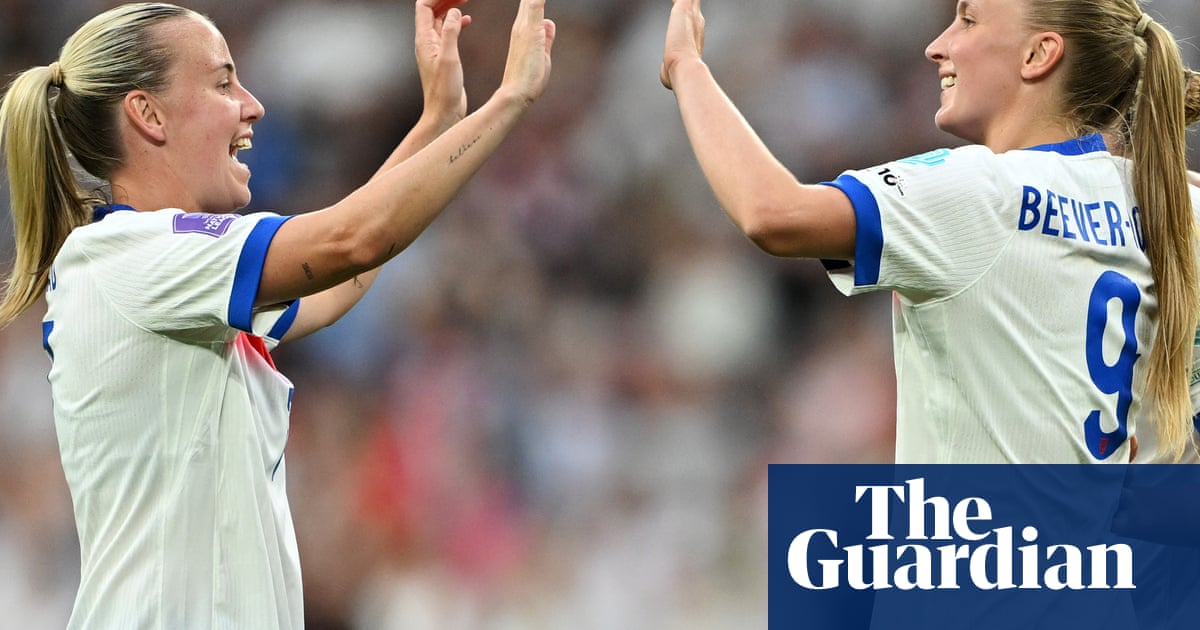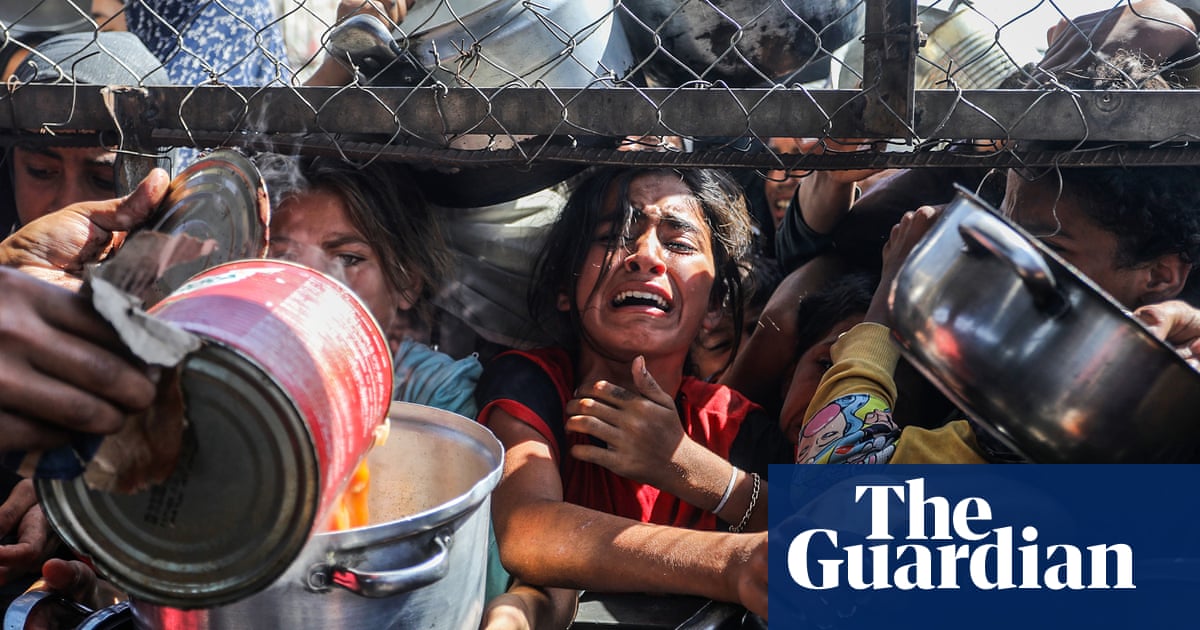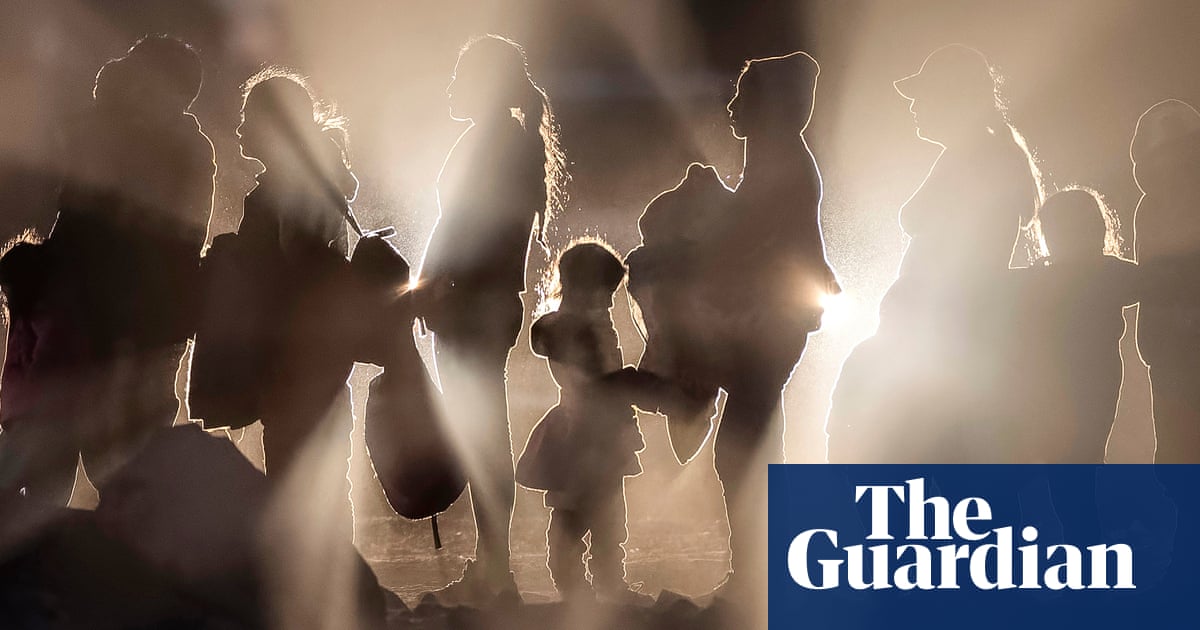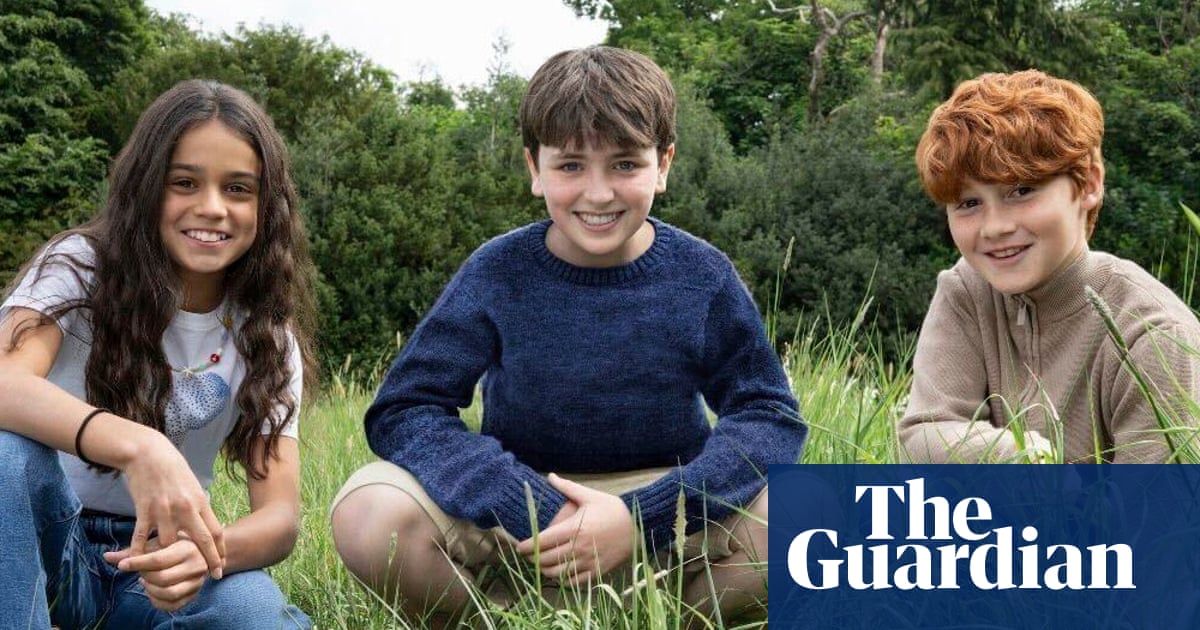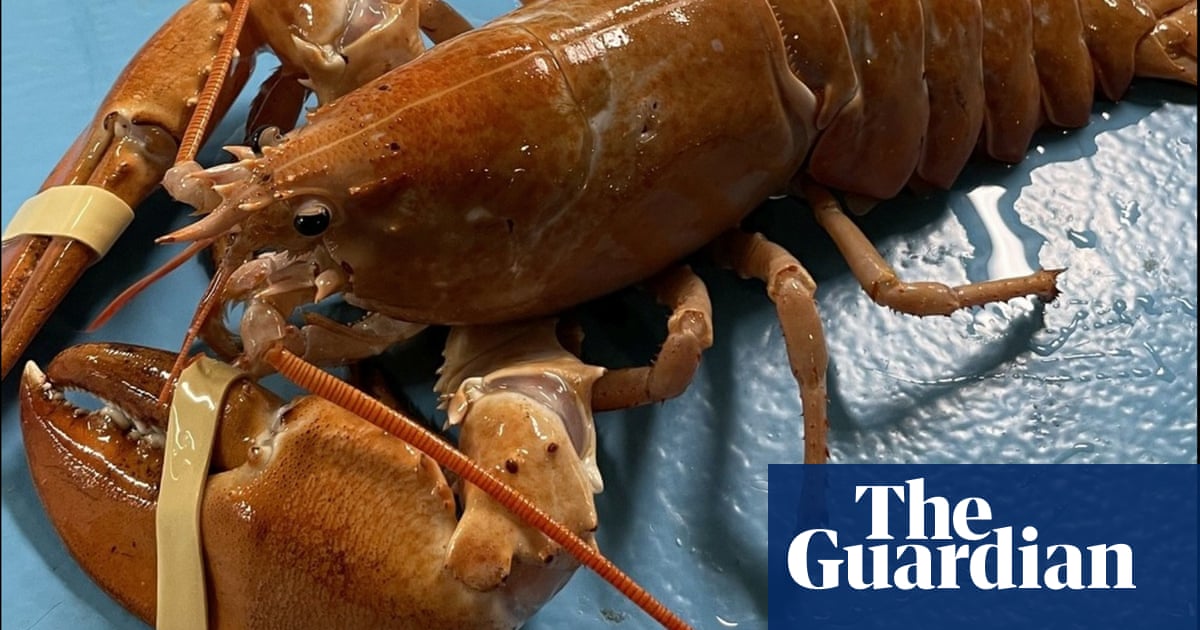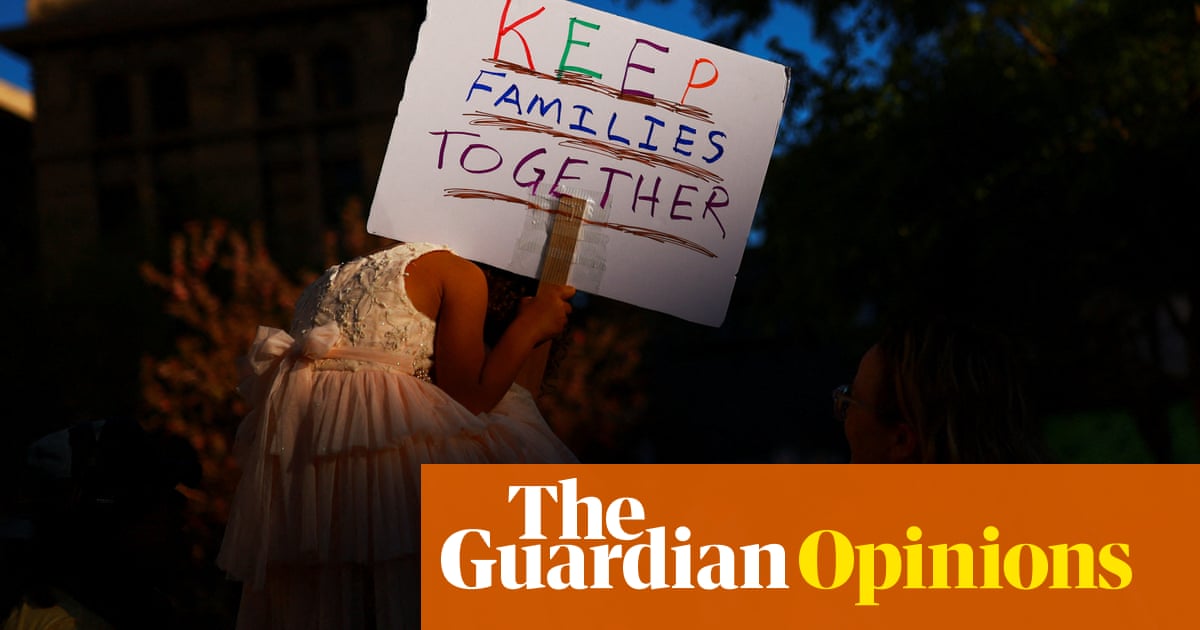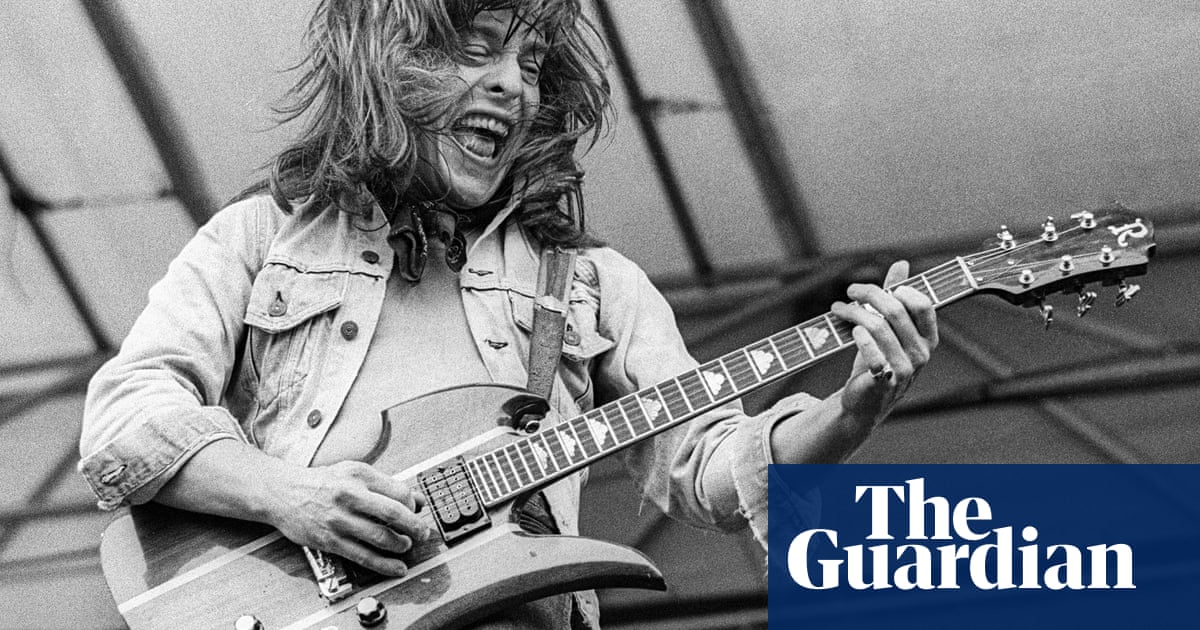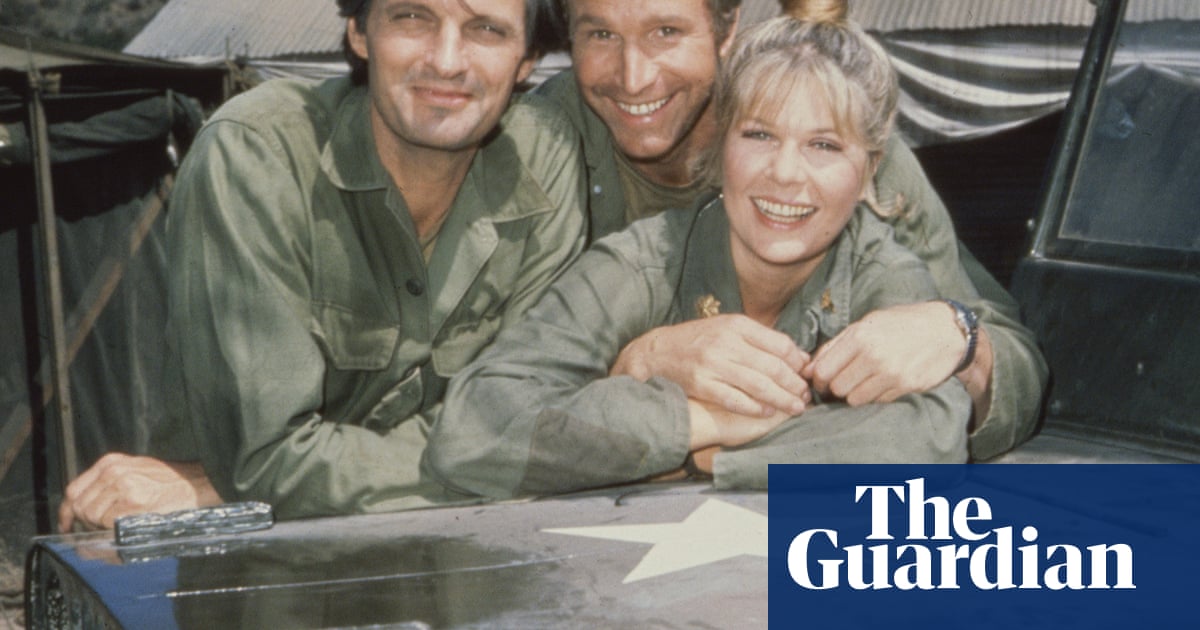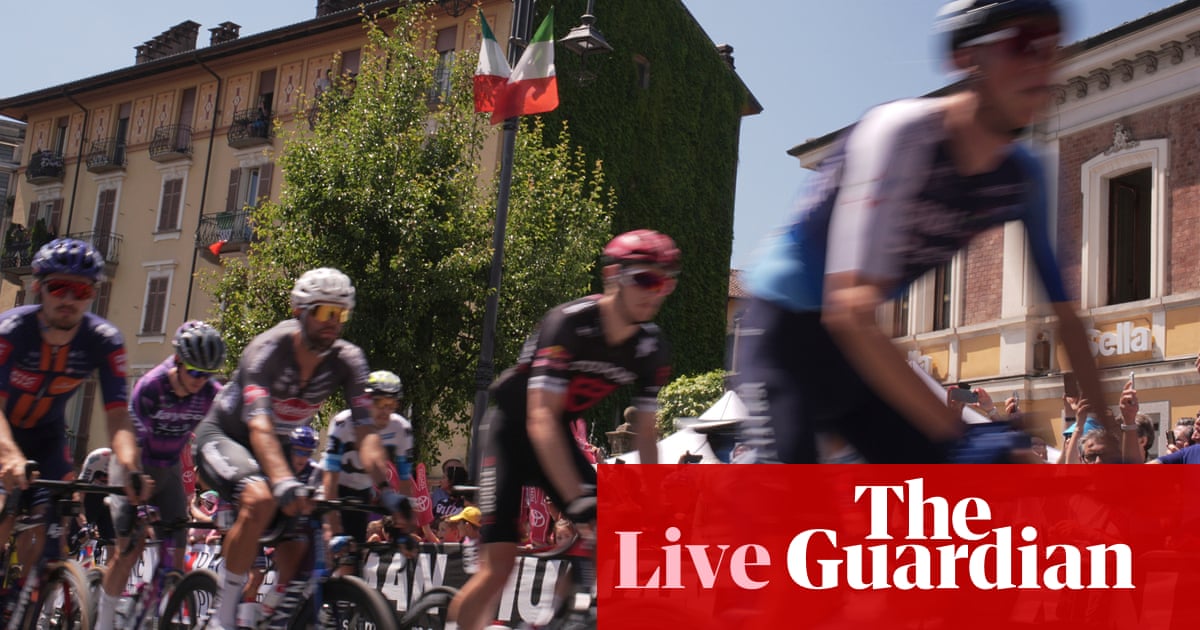In Saint Etienne, it is usually Bob Stanley who suggests the band’s tightly defined album concepts. What if you graft folk melodies to dance music? Make vaporwave about early New Labour? While finishing ambient pop album The Night, released in the dark of last winter, Stanley pitched an even starker one for its successor: the end of their band.
“I didn’t think I was saying anything uncomfortable or shocking,” says Stanley, affable and understated, in a park near his Bradford home. “When you’ve known each other for so long you have a psychic thing anyway. It felt like we would all agree.”
I meet Pete Wiggs and Sarah Cracknell in a London bar, separate from Stanley – no falling out, they assure me, simply living as they do across Yorkshire, East Sussex and Oxfordshire is a scheduling nightmare. Wiggs couches his thoughts about Stanley’s proposition carefully. “Once I got used to it, I thought it was a great idea. We’ve not split up acrimoniously, and have some control over it.”
International, out in September, will be the final Saint Etienne album. Bringing together collaborators including Nick Heyward, Xenomania, Erol Alkan and the Chemical Brothers – who appear on the fizzing and life-affirming new single Glad – the album is a strictly-bangers leaving party for one of the most singular bands in British indie. Few albums are likely to contain rave hedonists Confidence Man and severe cult broadcaster Jonathan Meades, who provides text for the album’s sleeve. “I wanted to finish our album journey on a high,” says Cracknell. “Do something really special and stop in our prime.”
Stanley remembers a time in pop when most groups did finish, powering pop’s forward motion. He argues that it has slowed, pointing to the decade it took for the hyperpop music on the PC Music record label – which he adored – to reach the mainstream on Charli xcx’s Brat last year. That type of underground-to-overground travel “used to happen all the time, and it would take 18 months”, says Stanley. Pop is “clearly nowhere near as important as it used to be – we might as well be talking about jazz or modern classical, where there’s great music but it’s not really adding much [to culture]. But music wasn’t that important before the 1920s, either.” Like Saint Etienne themselves, “these things don’t last for ever”.
What about the current crop of exciting female pop stars? Stanley praises “the look, the sound, the artwork” of the “properly great” Charli, Lana Del Rey and Sabrina Carpenter. But he maintains that “music’s just not as central to people’s identities” as it was. If that sounds like a controversial position, he has others. “I hate Glastonbury,” he says. “Can’t stand it. A single setting for all kinds of music feels entirely wrong to me.”
Stanley has always been opinionated about music. “I loved Grease,” remembers Wiggs of his early teens growing up alongside Stanley in Croydon. “Even then, Bob was telling me it was nothing on the original 50s stuff.” Later, the pair set up fanzines Pop Avalanche and Caff, but the indie music they covered became “very dreary”, Stanley says. “When house and techno came along it was like, ‘Oh, this is it.’”
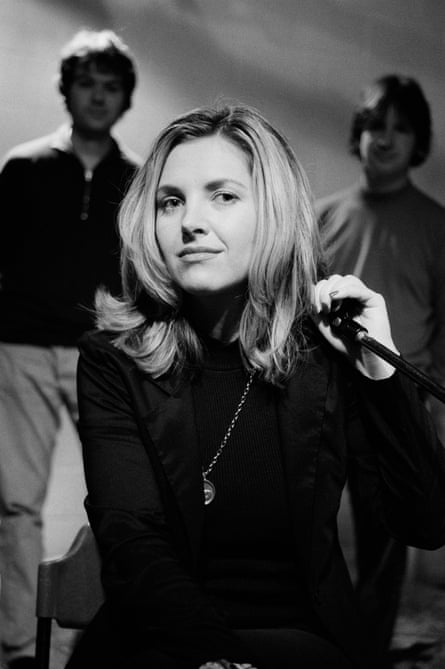
Neither of them were musicians, but radical, sample-heavy singles by UK producers Bomb the Bass and S’Express convinced them they didn’t need to be. Though Wiggs later studied for a film music degree, Stanley wears his inability to play an instrument as “an asset” – if he could play Chopin, he argues, his instincts as a pop fan might have diminished. Composer and orchestrator David Whitaker, who worked on their 1994 album Tiger Bay, saw his potential and offered him piano lessons. “Lovely bloke,” remembers Stanley, “but I was like, I really actually think I don’t want to learn.” Besides, “nobody ever asks Pet Shop Boys if they can play the piano”.
Learning songwriting on the job meant that their first single was a cover. Only Love Can Break Your Heart was a thrilling landgrab of Neil Young’s 1970 original, at once faster and slower with brisk house pianos and languid dub reggae. The pair’s plan was to have rotating singers, in that case indie singer Moira Lambert, and down the pub they casually signed to friend Jeff Barrett’s new Heavenly Recordings, who released the single in May 1990.
Cracknell heard the single and loved it. Born to a showbiz Windsor family (her mother, Julie Samuel, was an Avengers star, her father, Derek Cracknell, Kubrick’s recurring first assistant director), teenage Cracknell was galvanised by indie band Felt’s shambling melancholy and spent the 1980s “getting close to a record deal” with various bands. But she had given up, and was enrolled in drama school when Stanley’s girlfriend suggested her for a featured vocal. “I liked that she didn’t sing with an American accent,” says Stanley of his first impressions, “which then was unusual.”
But what attracted Cracknell to them? “They had the 1960s, dance music and melancholy,” she smiles. Stanley and Wiggs asked Cracknell to become the group’s sole, permanent singer, and the newly minted trio recorded debut Foxbase Alpha in the Mitcham council house of producer Ian Catt’s parents. Using samples from bygone British pop and TV – there were too many legal challenges to US samples at the time – the album was powered by a tension between pop’s past and present that would become a very Saint Etienne mix, packed with shout-outs to the city they had just moved to.

“I was always scared of London, growing up in Croydon,” says Stanley, who remembers marvelling over exotic neighbourhood names such as Shacklewell and Haggerston. “This was when all the districts were very different from each other.” The trio explored London through its Irish pubs and Portuguese cafes, “pie and mash shops, old London things”. That geography was all over their 1993 masterpiece So Tough, with trip-hop and wide-eyed symphonic pop bathed in bright echo – as if recalling a radio show from last night’s dream.
They argue that they used success to do what pop fans, rather than what Stanley views as their more tribal indie peers, would prioritise, like releasing a Christmas single or wearing gold lamé suits on the telly. “We were all quite hedonistic,” Cracknell says of those years, “but maybe that’s why we stayed together? We used to go out to clubs a lot.” This led to remixes by Andrew Weatherall and Autechre. “We went to watch Bonfire Night fireworks in Highbury with Aphex Twin,” remembers Stanley, after visiting the elusive producer at his flat to commission a remix.
Despite inviting a nascent Oasis to support them – Stanley had met Noel Gallagher as a roadie, and they all loved the band’s Live Forever demo – they avoided being dubbed Britpop, which Stanley today terms “nationalistic” and “the absolute antithesis” of their project. The pounding Eurodance of 1995’s He’s On the Phone protested against that era’s guitars, and became their biggest hit. The producer who mixed the track, Brian Higgins, offered them a demo that they turned down: it became Believe by Cher. “We’d probably be living in solid gold houses now,” says Stanley.
Reinventing for Y2K, they decamped to Berlin with glitchy electronic trio To Rococo Rot, who teased them about indulgences such as changing chords. They dialled down the bleeps and thuds of the city’s club scene, resulting in their subtle and slept-on album Sound of Water. Its second single, Heart Failed, bitterly surveyed New Labour Britain and its market-driven urban regeneration: “Sold the ground to a PLC / Moved the club out to Newbury / Sod the fans and their families.” That flattened culture was explored again in the 2005 documentary Saint Etienne made with film-maker Paul Kelly about east London’s desolate Lower Lea Valley before it disappeared to Olympic development.
Throughout their career, Stanley is proud that Saint Etienne got “no bigger or smaller” in the size of venues they played, and cites Bob Dylan and Prince as role models for staying true to oneself. They all credit their decision to swear off long tours as key to longevity. “How the hell do people do this?” Stanley remembers thinking after even a relatively brisk jaunt. “That, and we’ve all got complimentary personalities,” says Wiggs. “No horrific egos,” agrees Cracknell.
More recently, 2021’s I’ve Been Trying to Tell You used the melancholic vaporwave genre to examine late-90s nostalgia (they were disappointed that no one worked out that its track names were all horses that won on the day of Labour’s 1997 landslide). By the time of The Night, Stanley was suffering sleepless nights raising a small child while Wiggs and Cracknell were fretting about older children leaving home. The drizzly, downbeat album contained spoken word from Cracknell mourning the “energy and belief” of their 20s and was provisionally titled Tired Dad. They were “talking to people of a similar vintage to us, and being honest about it”, says Wiggs.
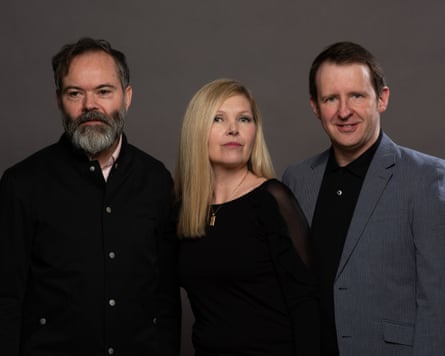
Recording International was low on drama – “because we’re English”, says Stanley – until final song The Last Time, written as a farewell to each other and their loyal audience. “I found it very difficult to get through singing it without crying,” says Cracknell, whose confiding and soulful vocals have arguably been Saint Etienne’s greatest asset. “It was the last song we recorded for the album, and the realisation really hit me.”
Outside the project that has consumed them for three decades, Wiggs is working on a film soundtrack, Stanley is writing more books (he has already written two doorstopping histories of pop music), and the two will continue their celebrated archival pop compilations for reissue label Ace Records. Cracknell winces that she has “not thought past the end of 2025”, which makes her anxious. Is there a risk their end might not be permanent? “I don’t think there is,” says Stanley, who is looking forward to meeting his bandmates and their families without talking shop. Wiggs and Cracknell’s kids are, they tell me proudly, “like cousins”.
Cracknell, an only child, was “always collecting siblings” – until Saint Etienne. Asked what she is most proud of, it is not their 13 albums or Top of the Pops appearances, but their friendship. “That we have such a bond between the three of us,” she says, looking out now to the bar’s exit. “And that will never go.”

 1 day ago
6
1 day ago
6

